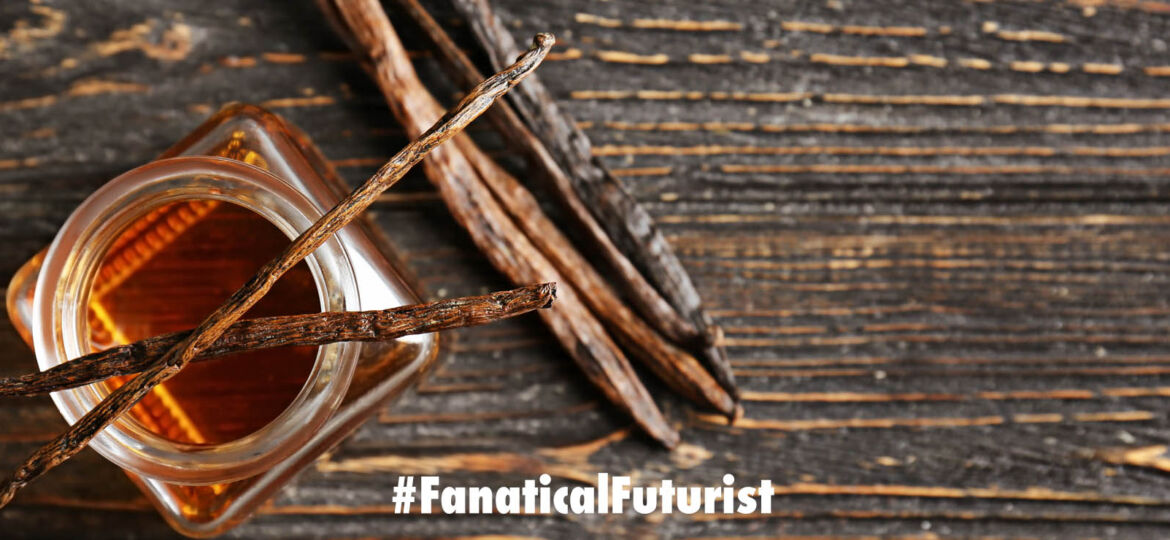
WHY THIS MATTERS IN BRIEF
If you think plastics can only be recycled to make new plastics you’d be wrong.
 Love the Exponential Future? Join our XPotential Community, future proof yourself with courses from XPotential University, connect, watch a keynote, or browse my blog.
Love the Exponential Future? Join our XPotential Community, future proof yourself with courses from XPotential University, connect, watch a keynote, or browse my blog.
I see many weird things – such as molecular assemblers and self-evolving robots and AI’s. But turning plastic into food flavouring as a means to recycle it, well, that’s a new one on me.
Developing forms of plastic that don’t take centuries to break down after use is a common objective among eco-conscious material scientists, and lately we’re seeing how bacteria might offer a helping hand by turning plastic back into its constituent chemicals. And now scientists at the University of Edinburgh have taken this idea one step further, by demonstrating how an engineered form of E. coli bacteria can be used to turn plastic bottles into vanillin, the primary compound of vanilla flavoring.
Discoveries in recent years have demonstrated how bacteria might help us tackle the monumental problem of plastic waste. These have included the unearthing of enzymes produced by bacteria that lurk around recycling centers in Japan and feed on the material as an energy source, and the use of bacterial biofilms that can trap difficult-to-trace microplastic particles. Lately, we’ve also seen how embedding enzymes in plastic during production can enable the material to break down in days, or even keep itself clean.
The new research from University of Edinburgh scientists is pioneering in that it doesn’t just seek to quickly break down single-use plastics, but use bacteria to turn it into something useful. The team focused on polyethylene terephthalate (PET), the plastic typically used for packaging of everything from food, to shampoos to soda bottles, and generates around 50 million tonnes of waste each year.
While PET can be converted into its original building blocks that are used to produce more PET plastics through current recycling methods, the authors of the new study sought to turn it into something else entirely. They developed a technique that uses an engineered form of E. coli bacteria to take aim at a PET waste product called terephthalic acid (TA). With fine-tuning of the chemical reactions, the bacteria was added to degraded PET plastic bottles and was able to convert 79 percent of the TA to vanillin.
“This is the first example of using a biological system to upcycle plastic waste into a valuable industrial chemical and this has very exciting implications for the circular economy,” says first author of the study Joanna Sadler. “The results from our research have major implications for the field of plastic sustainability and demonstrate the power of synthetic biology to address real-world challenges.”
While vanillin is the main chemical component of extracted vanilla beans, it has wide-ranging applications beyond just the food industry, also serving as an ingredient in herbicides, cosmetics, cleaning products and anti-foaming agents. So, if the scientists can demonstrate how their technique can be scaled up, it could offer a new source for a product the world uses tens of thousands of tonnes of each year.
“This is a really interesting use of microbial science at the molecular level to improve sustainability and work towards a circular economy,” says Dr Ellis Crawford Publishing Editor at the Royal Society of Chemistry. “Using microbes to turn waste plastics, which are harmful to the environment, into an important commodity and platform molecule with broad applications in cosmetics and food is a beautiful demonstration of green chemistry.”
The research was published in the journal Green Chemistry.
Source: University of Edinburgh
















